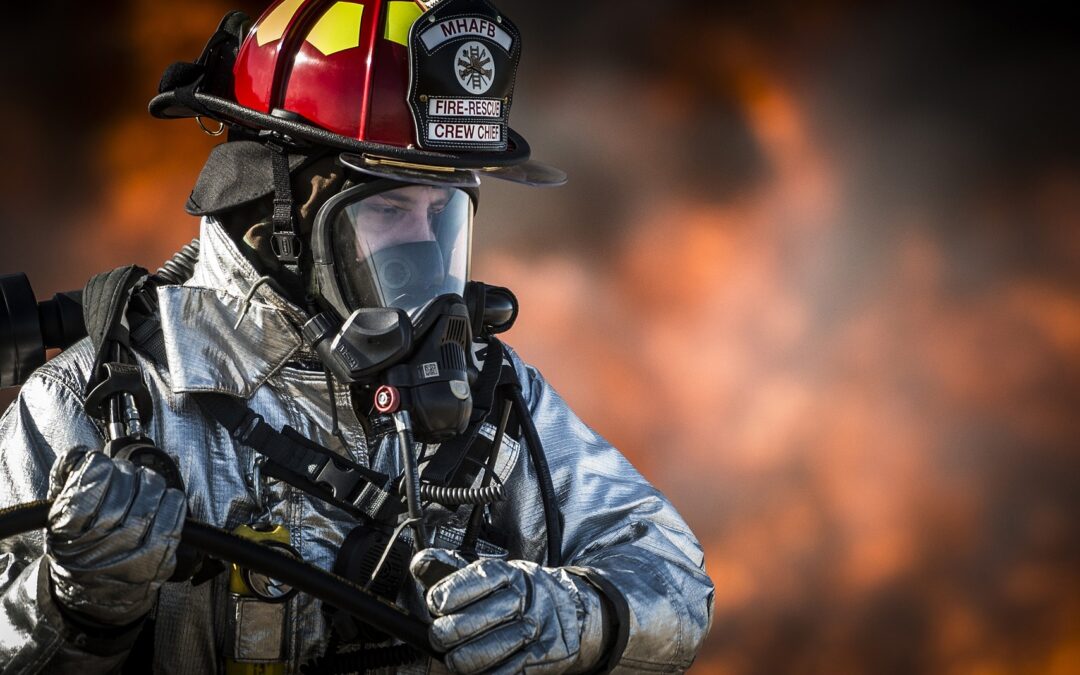This year alone, there have been more than 4 million acres of land burned in California, which is more than double the previous record. In addition to damage in California, entire towns of Washington and Oregan have been torched. Air quality has been greatly affected, and the smoke has been so thick that the entire sky turned orange over West Coast cities. Being a wildland firefighter during these times is no small feat. It involves long hours, high risks, and incredibly high stress. However, the physical implications of fighting these fires are not the only issue firefighters face.
With climate change rapidly affecting our planet, the dangers of wildfires are ever-present. Unfortunately, the national shortage of full-time firefighters does not allow for the current workforce to recover and decompress, which leads to exhaustion and depletion of mental health. The pandemic has only made the issue worse, as state budgets are tight and people are forced to compete for resources.
Mental health discussions often take a back seat, but they should be at the forefront of the conversation. Many first responders and firefighters battle PTSD, trauma, anxiety, depression, and addiction as a result of this strenuous work. In addition, it is estimated that only 45% of firefighter suicides are reported, according to Jeff Dill, founder of the Firefighter Behavioral Health Alliance. Many firefighters are plagued by the stigma associated with mental health issues. This prevents them from speaking out about what they’re struggling with.
4 Things Firefighters can do to Safeguard Their Mental Health.
Explore Mindfulness Meditation
Practicing mindfulness helps to heal a person both mentally and physically. When people go through trauma, their brain can replay past traumas and keep the brain in trauma mode. This can lead to internal brain damage. Through mindfulness and meditation, people are able to identify their current thoughts rather than referencing past trauma or contemplating future dangers. When a person is able to limit their thoughts to the present, they allow their mind and body to heal. In order to practice mindfulness, there are phone applications like Calm, Headspace, and 10% Happier. In addition, yoga is a great option to work on meditation and mindfulness.
Practice Grounding
Another method related to mediation is grounding, and this is particularly useful to people who suffer from PTSD. This mindfulness practice connects the five senses to bring a person back to the present moment. This therapeutic technique is meant to reconnect you to the earth. It can be as simple as planting your feet and focusing your thoughts on the security and stability of your present situation. You can also hold an object with some weight in your hand and really focus on it. Many firefighters suffer from flashbacks, and grounding is a great method to redirect that energy to the present.
Set Boundaries
It is really important to know your limits and be in touch with them. Firefighters can burn out quickly because not only is their work emotionally and physically taxing, but it is extra demanding when they are short-staffed. Giving yourself permission to say no when you need to is an important part of preventing burn out. Boundaries are also a sign of self-respect and self-care. Putting yourself first is the most important step in ensuring you are available to help others.
Talk With a Professional
In addition to giving yourself permission to have boundaries, it is also necessary to give yourself permission to feel your feelings and explore your thoughts. Therapy is a great way to validate your feelings and to process traumatic events. It can also be useful to speak with a professional before you have endured any trauma. Preventative measures are just as important as treatment when it comes to mental health. By preparing before the damage has been done, you have the tools at your disposal to combat these types of issues should they arise.
In extreme situations where medication and talk therapy are ineffective, ketamine infusions may offer hope. They are especially appropriate for situational mental health disorders where a fast-acting but relatively short-term treatment is appropriate. Request a free consultation from our office to see if ketamine infusion is right for you.

